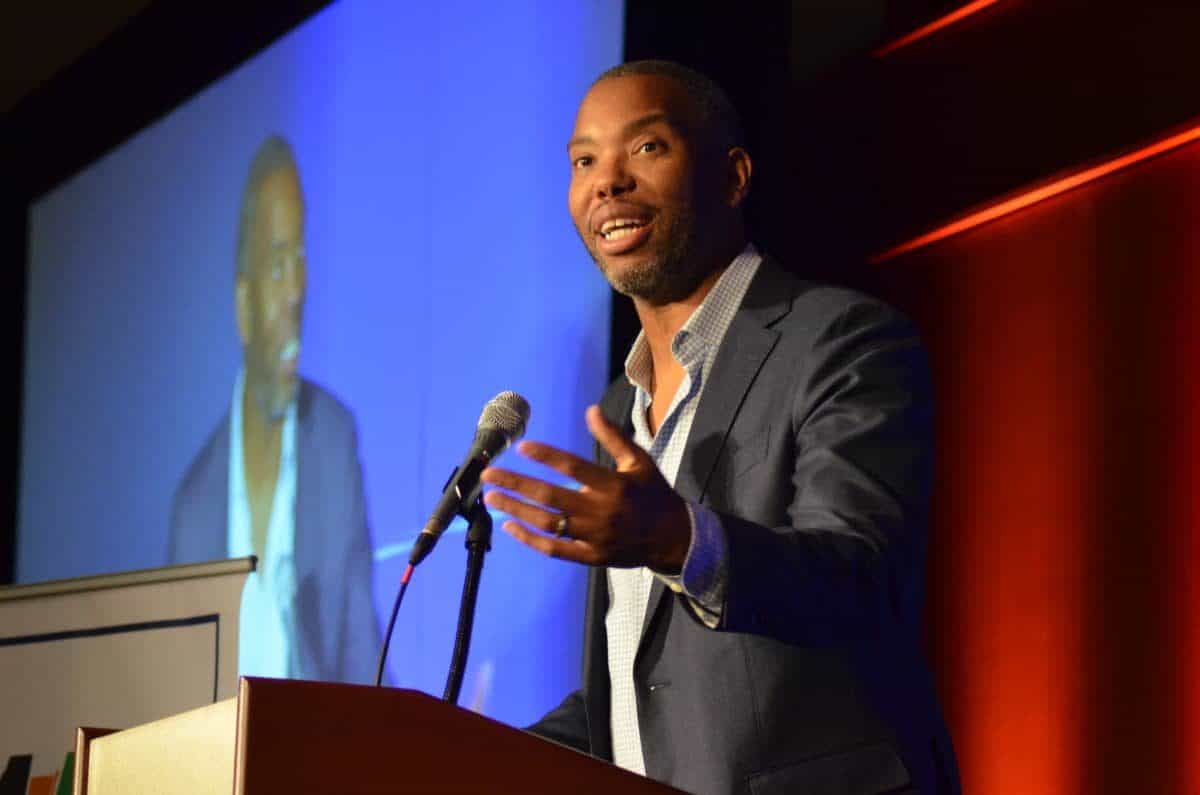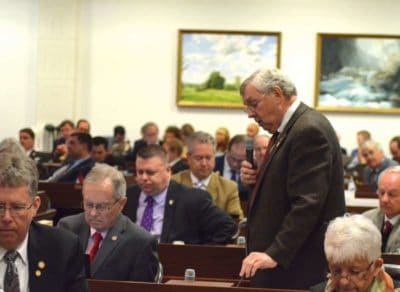

Capping the day-long Color of Education event Saturday, acclaimed author Ta-Nehisi Coates talked about his new novel “The Water Dancer” and spoke about the need to recontextualize American history and its heroes.
“There would be no George Washington without the people he enslaved,” Coates said. “No America without the people this country allowed to be enslaved.”
Similarly, he said that the way we think about slavery and what it meant to be a slave needs to be recontextualized as well.
“Black people who were enslaved, that wasn’t what they were,” he said. “That was something that someone had done to them.”
He said his novel is a contribution to the effort to change the context. It’s the story of Hiram Walker, a young slave with a photographic memory who, ironically, can’t remember the mother he lost.
Through that book, Coates said he tried to bring the characters to life in a way that doesn’t just focus on the worst thing that happened to them — their imprisonment in the American system of slavery.
“I felt like I was trying to find some sort of terminology … that would emphasize what somebody had tried to do to them, as opposed to making that crime who they were,” he said.
During a far-ranging discussion of the book, slavery, racism, and both modern and historical politics, Coates touched on a variety of topics from his visit to Thomas Jefferson’s home Monticello to the inevitability of Donald Trump as president.
On his trip to Monticello, Coates encouraged everybody — and especially all black Americans — to visit the site, which he says brings light to the ways in which American history needs to be seen through a different lens.
He talked about being asked if Sally Hemings had consented to her relationship with Jefferson.
“I’m not like a specialist on this, but, uh, if you can’t consent you can’t consent,” Coates said, adding that people have no problem understanding that concept when it comes to statutory rape. “Why we don’t recognize that when it’s slavery is another story.”
He said issues like these are important not just for historical understanding, but for an awareness both of modern politics and America’s sense of itself.
In a country built on slavery, where the founding fathers were slaveholders, reckoning with that fact changes the way Americans think about things such as the exceptionalism of the United States.
“I think one of the problems is that kind of remembering … really would throw a lot into question,” Coates said. “Everything, all of our stories and myths about ourselves become so very difficult to maintain.”
He also said that a study in history can change the way one thinks about American democracy. In a country where for years that democracy only applied to certain groups of people, and in which efforts to disenfranchise voters still remain, the narrative changes as historical understanding grows.
“You start thinking about it like that and then you start saying, what’s our period of democracy?” he said. “It starts to shrink.”
History, he said, also provides the context for the election of Donald Trump.
“If you understand how history works, Donald Trump becomes a lot less surprising,” he said. “You don’t sit around pulling your hair all night saying how did this happen.”
He said if 100 years from now a historian looks back and asks how the first black president in America was followed by the “worst of white presidents,” America’s history of slavery and racism can explain it.
“Given the country that we are talking about, that makes sense,” he said.
The Color of Education event was held by the Public School Forum of North Carolina and featured a host of sessions and speakers on issues related to racism, equity, and education. It included breakout events with topics such as addressing bias in schools, recruiting a diverse teaching force, supporting immigrant families, and addressing racial disparities in school discipline.


